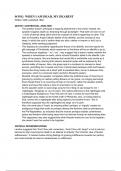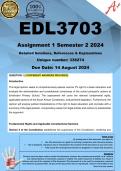Summary
Summary Year 12 Christina Rossetti Poetry Knowledge Organiser
- Module
- Drama and poetry pre-1900
- Institution
- OCR
Provides dates for poems (both when they were written and officially published), quotes, contextual analysis and critical interpretations for the following poems: Song: When I Am Dead My Dearest Remember From The Antique Echo Shut Out In The Round Tower At Jhansi A Birthday Maude Clare
[Show more]




